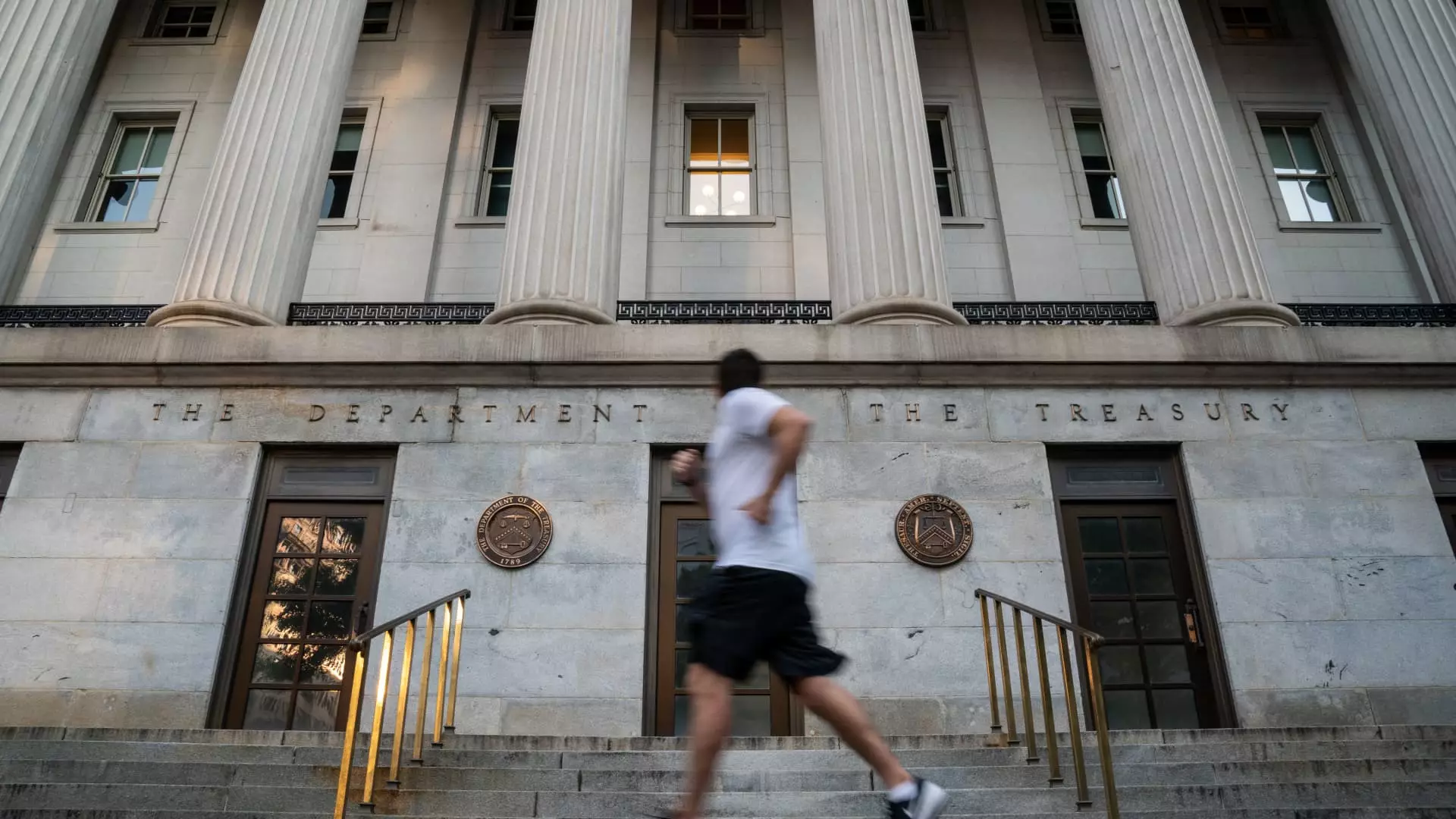In a politically charged climate, one might hope that bipartisan consensus could yield substantial safeguards against criminal finance. Instead, the recent repeal of ownership reporting for small businesses reveals the dark underbelly of regulatory rollback. The U.S. Department of Treasury, under the guise of reducing bureaucratic burdens, has scrapped a crucial component of the Corporate Transparency Act, which previously mandated millions of small businesses to disclose their beneficial owners. This change is not just a minor procedural tweak; it fundamentally undermines the Act’s intent to disrupt illicit financial activity facilitated through opaque corporate structures.
Fifteen years after the passage of the Corporate Transparency Act and without any sign of slowing down, we find ourselves in a dangerous cycle of deregulation. The interim rule issued by the Financial Crimes Enforcement Network (FinCEN) illustrates a significant pivot from responsible governance—a move many legal experts claim provides fertile ground for money laundering operations disguised as legitimate businesses. As the government embarks on this reckless path, one cannot help but question the ideological desperation that fuels such decisions.
A Catastrophic Commitment to Deregulation
The rationale offered up by FinCEN director Andrea Gacki—that the burdens of data collection outweigh the public interest in pinpointing criminal financial activities—is as disingenuous as it is perilous. This so-called reassessment not only trivializes the massive risks associated with unfettered financial activity; it effectively strips away a critical tool that had the potential to combat financial crimes. With the exemption now in place, an estimated 32.6 million entities may be doing business without the fear of scrutiny, a worrisome reduction that elevates risk over responsibility.
What’s alarming is that foreign companies will still face the obligation to report if they engage within U.S. borders, but they’re largely exempt if they happen to operate through a U.S.-based shell company. This exemption demonstrates a shocking inconsistency in our approach to corporate transparency. As Scott Greytak of Transparency International aptly pointed out, “criminals can evade this national security law by simply starting and running those front companies inside the United States.” This loophole is akin to rolling out the red carpet for money launderers while simultaneously touting our commitment to eradicating corruption.
U.S. vs. Global Standards in Corporate Accountability
As global standards for corporate accountability advance, America seems to be willfully stepping back into an era of blind trust in an unregulated marketplace. Countries throughout Europe, for instance, have embraced stringent reporting requirements aimed at dismantling shell companies that perpetuate financial malfeasance. In light of these international movements, America’s refusal to hold its own businesses to similar standards is detrimental, not just to its economic integrity but also to its international reputation.
At a time when an act aimed at improving transparency has been gutted, we run the risk of witnessing a slow erosion of accountability that others will exploit. Sparking outrage within both the governmental and financial sectors, advocates for corporate transparency are rightly criticizing this move as shortsighted—an opening for criminal enterprises that should be closely scrutinized. The alarming trend toward privilege for the business elite reinforces a disturbing notion: that certain actors can operate in shadows with impunity.
The Real Victims: Responsible Businesses and Society
Let’s not overlook the collateral damage of such policy changes—namely, the honest small businesses that seek to operate within the law. For those entities trying to contribute positively to society, the absence of competitive accountability means potential customers and clients may question their legitimacy. Without the assurance of beneficial ownership data to validate business operations, sincere entrepreneurs find themselves at a disadvantage against faceless entities that can utilize secrecy to their advantage.
The implications of this decision extend beyond mere financial discrepancies; they affect public trust in the system at large. When citizens perceive that the scales are tipped in favor of the dishonest and the wealthy, skepticism deepens. Democracy thrives when transparency flourishes, and when the government takes steps to reverse meaningful measures against corruption, it inadvertently signals to the public that systemic dishonesty will be tolerated, if not encouraged.
To observe our government dismantling accountability standards while touting economic freedom is nothing short of hypocrisy. In a world where the truth often struggles to prevail, the consequences of this rollback will reverberate long after the ink on the regulatory notice has dried. The chasm between the integrity of the average citizen and the privilege of corporate secrecy continues to widen, setting a precarious precedent for the future of commerce in America.

Leave a Reply